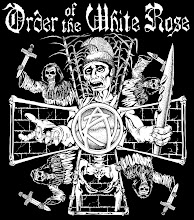5:30 PM
7:30 PM Maui Community College
Ka Lama Building FREE
Noho Hewa" opens with this excerpt from the poem "Hawaii" by activist Haunani-Kay Trask:
"... Haole plover / plundering the archipelago of our world, / And we, gorging ourselves / on lost shells / blowing a tourist conch / into the wounds / of catastrophe."
The poem is a most fitting summary of the film (an uncompleted version was viewed for this review), which explicitly illustrates that the phenomenon of colonialism extends beyond the physical occupation of the land or replacement of the culture.
Trask in fact goes so far as describing the strife facing Hawaiians as ethnic cleansing, adding "ethnic cleansing isn't just something that they do physically to people, it's something that happens in the mind."
To explain this concept, producer and director Anne Keala Kelly uses examples of colonialism in Hawaii -- bombings at Makua, the clumsy handling of burial sites during development, homelessness contrasted with the construction of multimillion-dollar gated communities -- and illuminates them with discourse by numerous Hawaiian academics and activists.
"The destruction of the Hawaiian way of life used to look like a missionary holding a bible. This is what it looks like in the 21st century," says Mikahala Roy of Kulana Huli Honua, as footage of construction rolls on the screen.
In response to homeless Hawaiians being evicted from public beaches, Trask says, "That's just what ethnic cleansing establishes ... You have no place to live. You do not have a home. You're not there."
For those uneducated about the issues "Noho Hewa" addresses, Hawaiian activists can appear to be unduly angry, their causes ridiculously unrealistic. But in taking a stand on the side of the Hawaiian cause, the film does an excellent job of providing context to their perspectives. And it even goes one step further: It conveys knowledge that resonates in the heart as well as the mind.
Hawaii International Film Festival
Six films are nominated for the Hawaii International Film Festival's top award, the Halekulani Golden Orchid Award, in the category of documentary feature. The award recognizes artistic and technical excellence and contributions to cross-cultural understanding. Jurors are actor Cliff Curtis of "Whale Rider," "Fracture," "Sunshine" and "Life Free or Die Hard"; Don King, director of "Beautiful Son"; and Grace Lee, anchor at KGMB 9 TV.

1 comment:
Growing up I had no knowledge of these things. Because that is what the US government wanted. Oppressed from language and culture over time we would have forgotten who we are. In turn becoming haole-fied. College has opened my eyes to the truth.
Post a Comment